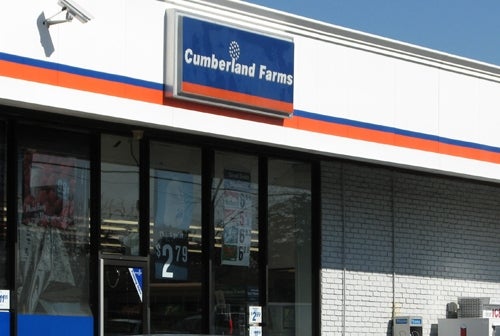When customers pull up to one of Leo Vercollone’s two dozen gas stations across Massachusetts and use a credit card, it may be convenient for the customer, but it equates to money out of Vercollone’s margin.
While pay-at-the-pump credit card machines have made getting gas more convenient for customers, interchange fees charged by credit card companies to use plastic cards are forcing owners to pay up. And the result is a nationwide call by convenience and gas station operators for the U.S. Congress to reform how credit companies charge so-called “swipe fees.”
Adding Up
“It’s my biggest expense behind payroll,” said Vercollone, who is president of Verc Enterprises, which is headquartered in Duxbury but has stores in Framingham, Acton and Boxborough.
It’s not just the little guys being hurt.
“We’re in a business of very small margins, pennies,” said Joseph Petrowski, CEO of The Cumberland Gulf Group, headquartered in Framingham, with almost 600 stores in 11 states. “We live in a very competitive world, we post gasoline prices on our stores, our customers are literally mobile. If we’re not competitive we can’t survive.”
Credit card companies, through local banks that issue the cards, charge interchange fees of between 1 percent and 3 percent of the transaction’s cost for using plastic. As more people use credit now versus two decades ago — Petrowski estimates 80 percent of sales use credit — and as gas prices increase, the costs are adding up for convenience and gas stores.
But as congressional leaders in Washington, D.C., consider amending rules for credit card companies regarding processing fees, the credit card companies are defending the charges.
Offering plastic, they argue, increases sales, sales that would not be made if the gas station or convenience store only accepted cash. They also justify the fees as a cost of assuming the risk for making the payment for the transaction and not being reimbursed by the customer until later.
Taylor West, a spokesperson for the Merchants Payments Coalition in Washington, D.C., is not buying the credit card companies’ arguments.
She estimates that credit card swipe fees have tripled since 2001, adding up to $48 billion in total fees in 2008 nationwide. Meanwhile, more customers are using credit cards and the technology to process the transactions is cheaper, she says.
That’s why West’s group, along with the National Association of Convenience Stores, is trying to get legislation passed targeting the fees.
One proposed bill would create new disclosure rules for credit card companies to show exactly how much it costs to manage a transaction. Other bills would force credit card companies to negotiate rates with groups of convenience stores or national associations
“The rules right now are written by the credit card companies and they can change them at any time,” said Jeff Lenard, vice president of communication for the NACS. “And if you don’t like it, your only other option is (to go all) cash.”
In a more competitive environment interchange fees would be between two and four times less, the association predicts. In Europe, for example, interchange fees are half as much as they are on average in the United States.
Both pieces of legislation are pending in Congress, but with the national debate being dominated by health care and other economic topics, plus strong lobbying efforts by large credit card companies, there’s no timeframe of when legislation will be considered.
In the end, if credit card fees are reduced, prices in stores would be lower, said Tarek Yatim, who owns nine Gulf franchises in Worcester and MetroWest. As is it now, Yatim must charge all customers, even those who just use cash, the same price. That means cash customers are subsidizing the processing fee for credit users.
“If they lower the fees, then we can lower the prices,” he said. “It’s simple.”

